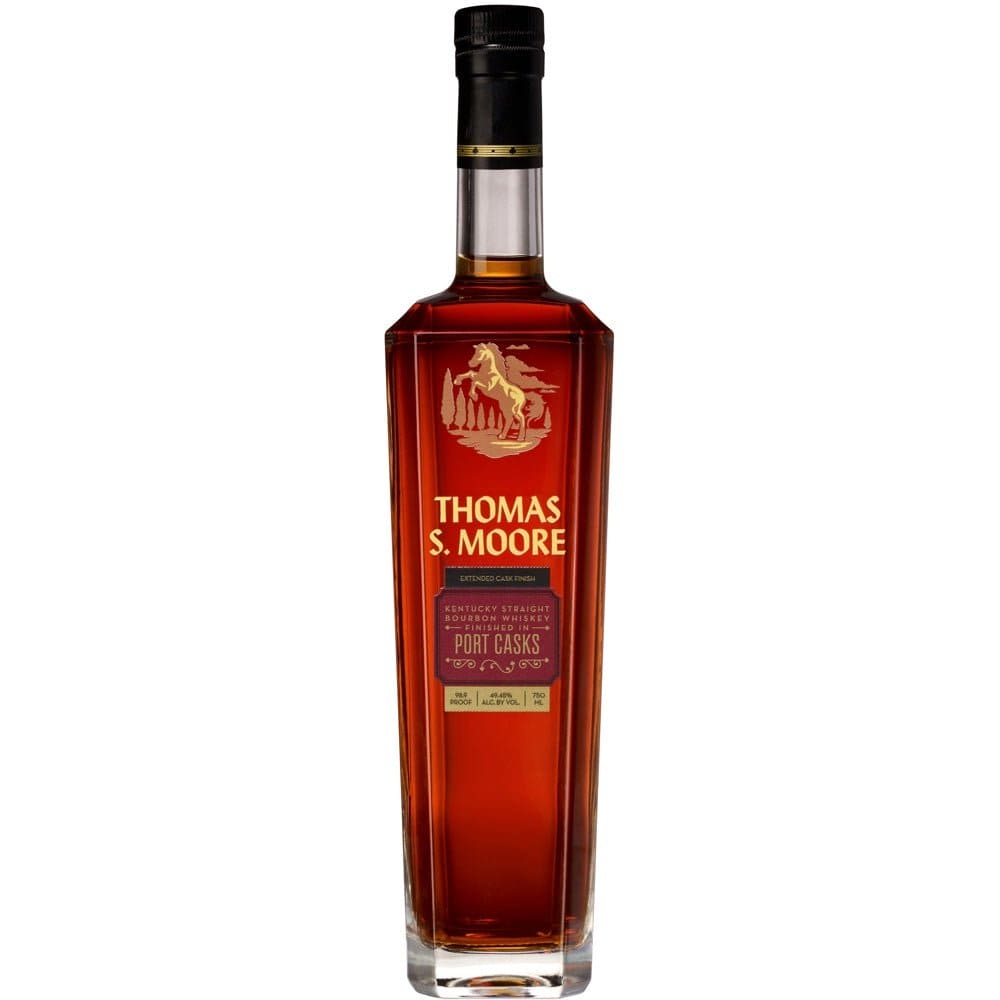
Thomas S. Moore Bourbon Port Cask
Experience the Distinction of Thomas S. Moore Bourbon Port Cask
Introducing the Thomas S. Moore Bourbon Port Cask, a remarkable addition to our exclusive series of cask-finished bourbons from the esteemed Barton 1792 Distillery. Crafted with precision, this bourbon embodies the perfect fusion of tradition and innovation.
Key Features:
- Signature High-Rye Mash Bill: Each bottle begins its journey with our renowned high-rye mash bill, ensuring a bold and spicy foundation.
- Extended Aging Process: Aged for many years in new charred oak casks, the bourbon undergoes a meticulous refilling process in various casks for an additional 1-3 years, enhancing its complexity.
- Unique Flavor Profiles: The extended cask finish imparts distinct character and nuances, making each expression of Thomas S. Moore a unique tasting experience.
- Refined Elegance: The result is a sophisticated whiskey that balances richness and refinement, ideal for both connoisseurs and casual drinkers alike.
Indulge in the captivating allure of Thomas S. Moore Bourbon Port Cask. Each sip is a journey through layers of flavor, showcasing the craftsmanship and dedication that defines our bourbon legacy. Perfect for savoring neat, on the rocks, or in your favorite cocktail.

Explore a World of Spirits and Liquor through our Comprehensive FAQ Section.
Discover a World of Spirits and Liquor in our Helpful FAQ Section.
Types of Spirits
- Whiskey: Made from fermented grain mash and aged in wooden casks.
- Vodka: Typically distilled from grains or potatoes and known for its clear, neutral flavor.
- Rum: Produced from sugarcane byproducts like molasses or sugarcane juice.
- Tequila: Made from the blue agave plant, primarily in the area surrounding Tequila, Mexico.
- Gin: Distilled with botanicals, primarily juniper berries, giving it a distinctive flavor.
Production Process
- Fermentation: The process where yeast converts sugars into alcohol.
- Distillation: Separating alcohol from the fermented mixture to increase its concentration.
- Aging: Storing spirits in barrels to develop flavors over time.
Tasting and Pairing
- Tasting Notes: Learn to identify different aromas, flavors, and textures.
- Food Pairings: Discover which spirits complement various dishes, enhancing the dining experience.
Cocktails and Mixology
- Classic Cocktails: Recipes and techniques for making popular drinks like the Old Fashioned, Martini, and Mojito.
- Mixology Tips: How to balance flavors and create your own cocktail recipes.
History and Culture
Origins: The historical background of different spirits.
Cultural Significance: How spirits are enjoyed and celebrated around the world.

